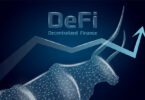Earlier this week, content management service provider Hyland launched its blockchain-based digital credentialing solution for education records. Called the Hyland Credentials for Higher Education, the solution enables easy verification and sharing of school and college records such as certificates, diplomas, and degrees.
Hyland is thought to have earned $700 million in revenues in 2018. The company is owned by private equity firm Thoma Bravo which recently acquired JD Power.
The blockchain credentialing platform provides an end-to-end solution for educational institutions to issue digital credentials and manage them using the blockchain. These credentials can be viewed, shared, and verified independently of any vendor network or proprietary software.
Credential fraud is a growing concern for employers as well as educational institutes. An opinion piece published by The New York Times estimates that there are 3,300 unrecognized universities worldwide that sell fake degrees. Moreover, a simple Google search brings up hundreds of results to get a fake certificate online. Using blockchain, Hyland aims to eliminate paper-based degrees, which are easy to tamper with and also improve efficiency for colleges and universities.
“This solution (Hyland Credentialing) transforms the way colleges and universities issue diplomas and certificates,” said Kevin Flanagan, director of higher education and government sales at Hyland.
These blockchain credentials are self-attesting, and employers and colleges need not verify them by matching with a database. Meanwhile, the credentials are co-owned by the issuer and the student. In theory, a person can manage his or her own records and reveal only relevant information to a querying organization.
“While self-verifying digital credentials are particularly valuable during a time of social distancing, they will be increasingly required to do business in a transnational, virtual economy as students graduate and seek employment in a global marketplace that has fundamentally changed,” Flanagan added.
Hyland developed the solution credentialing on the technology stack from its recent acquisition of Learning Machine, a blockchain credentialing startup that grew out of MIT Labs. The solution is underpinned by Blockcerts, an open standard for blockchain credentialing. At the time of the acquisition, it was stated that Blockcerts plans to align with the W3C standard on Verifiable Credentials.
Hyland is known for its OnBase solution, whose applications are used in healthcare, financial institutions, insurance, government, higher education, and manufacturing sectors. The credentialing platform would likely complement its existing stack of software solutions.
Among similar initiatives, the American Council for Education has received funding from the U.S. Department of Education to explore blockchain in education credentialing.
IBM has launched the Learning Credential Network (LCN) in collaboration with several educational organizations, including the National Student Clearinghouse (NSC).







